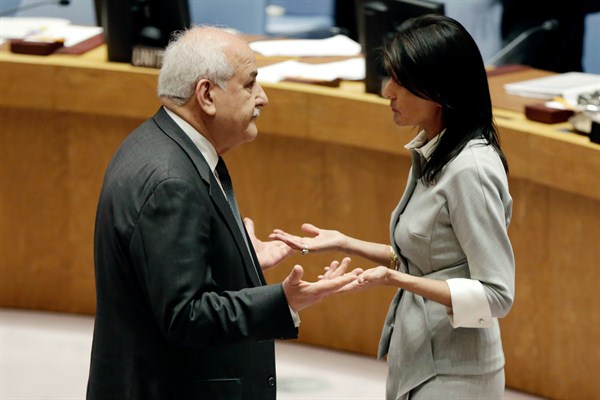The United Nations is a slow, imperfect and often unsuccessful peacemaker. We should celebrate that.
Last week, U.N. officials were grappling with three crises that have each been on the organization’s agenda for over half a century. On Tuesday, Undersecretary-General for Political Affairs Jeffrey Feltman flew to North Korea to call for “open channels” of diplomatic communication with Pyongyang to avoid a nuclear confrontation. His visit came just over 70 years after the U.N. General Assembly first set up an international commission to facilitate the reunification of the northern and southern halves of the country, a dream that remains as distant as ever.
On Wednesday, Secretary-General Antonio Guterres stepped up to reject the Trump administration’s recognition of Jerusalem as Israel’s capital, which contradicts standing U.N. resolutions. This too came almost precisely seven decades after the U.N. inserted itself into Middle Eastern affairs by voting for the partition of the British mandate of Palestine into independent Jewish and Arab states at the end of November 1947. Guterres finds himself standing up for a two-state solution to the Israeli-Palestinian conflict that is almost as old as the U.N. itself.

